Subhanaka Allahumma Wa Bihamdika Meaning And Arabic Text
There are some Duas which start with Subhanaka Allahumma. The supplications are said on different occasions and places and in this article we will look at the translation and meaning of these duas.
Advertisements
SubhanakaAllahumma Wa Bihamdika Ash Hadu is one of the beautiful dua the prophet used to recite after sitting or gathering. It is called Kaffaratul Majlis in Arabic meaning The Expiation of Assembly.
According to an authentic Hadith, the Prophet SAW said it serves as expiation for sins committed during the assembly or gathering. So let’s look at the meaning and benefits of this amazing invocation.
Subhanaka Allahumma Wa Bihamdika Ash Hadu Meaning In English
Subhanaka Allahumma Wa Bihamdika Ash Hadu means O Allah, You are free from every imperfection; praise be to You. I testify that there is no true god except You; I ask Your Pardon and turn to You in repentance.
Transliteration
Subhanaka Allahumma wa bihamdika, ash-hadu an la ilaha ilia Anta, astaghfiruka wa atubu ilaika.
Advertisements
Subhanakallahumma Wabihamdika Ashhadu An La Ilaha Illa Anta In Arabic
The Arabic text of this Dua is written as
سُبْحَانَكَ اللَّهُمَّ وَبِحَمْدِكَ، أَشْهَدُ أَنْ لاَ إِلَهَ إِلاَّ أَنْتَ، أَسْتَغْفِرُكَ وَأَتُوبُ إِلَيْكَ
Hadith Related To The Dua
Abu Hurairah RA reported: Messenger of Allah SAW said, “Whoever sits in a gathering and indulges in useless talk and before getting up supplicates:
‘SubhanakaAllahumma wa bihamdika, ash-hadu an la ilaha ilia Anta, astaghfiruka wa atubu ilaika (O Allah, You are free from every imperfection; praise be to You. I testify that there is no true god except You; I ask Your Pardon and turn to You in repentance),’ he will be forgiven for (the sins he may have intentionally or unintentionally committed) in that assembly.”
At-Tirmidhi
The second Dua which start with subhanaka allahumma is the Dua Istiftah, meaning the Dua for opening Salah.
The dua of opening salah is mentioned in a number of different hadith narrations and one of them begins with subhanakaallahumma wa bihamdika.
This dua should be recited immediately after the Takbeer, i.e. raising your hands saying Allahu Akbar you could recite this dua.
Advertisements
RELATED ARTICLES:
- Allahumma La Mani A Lima Ataita
- Allahumma a Inni Ala Zikrika Wa Shukrika
- Subhana Rabbiyal Ala Meaning, Arabic, Pronunciation And Hadith
Subhanaka Allahumma Wa Bihamdika In Arabic
In Arabic this dua is written:
سُبْحَانَكَ اللَّهُمَّ وَبِحَمْدِكَ وَتَبَارَكَ اسْمُكَ وَتَعَالَى جَدُّكَ وَلاَ إِلَهَ غَيْرُكَ
Advertisements
Transliteration to help with pronunciation:
SubhanakaAllahumma wa bihamdika wa tabarakasmuka, wa ta’ala jadduka wa la ilaha ghairuk.
Subhanaka Allahumma Wa Bihamdika Wa Tabarakasmuka Meaning
The english meaning of Subhanaka Allahumma Wa Bihamdika Wa Tabarakasmuka Wa Ta’ala Jadduka Wa la ilaha Ghayruka is, Glory is to You O Allah, and praise. Blessed is Your Name and Exalted is Your Majesty. There is none worthy of worship but You.
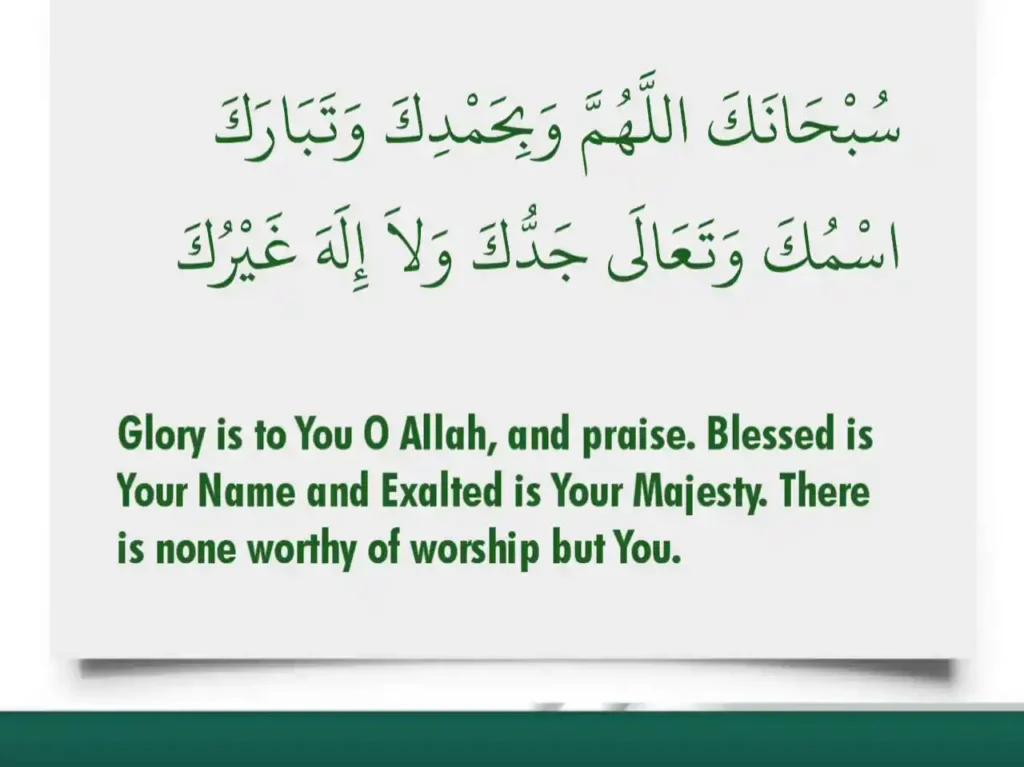
In hadith book of Sunan Ibn Majah Vol. 1, Book 5, Hadith 804 the same was mentioned. It was narrated that Abu Sa’eed Al-Khudri said: “The Messenger of Allah (ﷺ) used to start his prayer by saying: ‘SubhanakaAllahumma wa bi hamdika, wa tabarakas-muka, wa ta’ala jadduka, wa la ilaha ghairuka.
It was narrated that ‘Aishah said: “The Messenger of Allah (ﷺ) used to say when bowing and prostrating: ‘SubhanakaAllahumma, Rabbana wa bihamdik. Allahumma-ghfirli (Glory be to You O Allah, Our Lord, and praise. O Allah, forgive me,” following the command of the Quran. Grade: Sahih (Darussalam)
Reference: Sunan an-Nasa’i 1123
The Prophet SAW used to recite Subhanaka Allahumma Rabbana wa bihamdika in his Ruku (bowing) and Sujud (prostrations). The full Dua can be seen in the Hadith below.
Narrated `Aisha: The Prophet (ﷺ) used to say in his bowing and prostrations, “Subhanaka l-lahumma Rabbana wa bihamdika; Allahumma ghfir li.’ (Exalted [from unbecoming attributes] Are you O Allah our Lord, and by Your praise [do I exalt you]. O Allah! Forgive me).
Sahih al-Bukhari 794
It is necessary for the individual during the bowing and prostration positions to regularly say this prayer because it combines between remembrance of Allah and supplication.
And the Prophet (SAW) would say much of it during the bowing and prostrations after the revelation of surah Nasr.
In a nutshell, Allah commanded His Prophet SAW to celebrate the praises of his Lord and ask for forgiveness in this verse.
And he used to do that; he would frequently say in his bowing and prostration. The meaning of this is that you are praising Allah, the Mighty and Majesty, with the perfection of His attributes and negating any attribute of defect from Him and asking Him for forgiveness.
What to say upon completing ablution also begins with Subhanakal Lahumma
سُبْحانَكَ اللَّهُمَّ وَبِحَمْدِكَ، أَشْهَدُ أَنْ لاَ إِلَهَ إِلاَّ أَنْتَ، أَسْتَغْفِرُكَ وَأَتوبُ إِلَيْكَ
Transliteration
Subhaanaka Allaahumma wa bihamdika, ‘ash-hadu ‘an laa ‘ilaaha ‘illaa ‘Anta, ‘astaghfiruka wa ‘atoobu ‘ilayk.
Meaning
Glory is to You, O Allah, and praise; I bear witness that there is none worthy of worship but You. I seek Your forgiveness and turn to You in repentance.
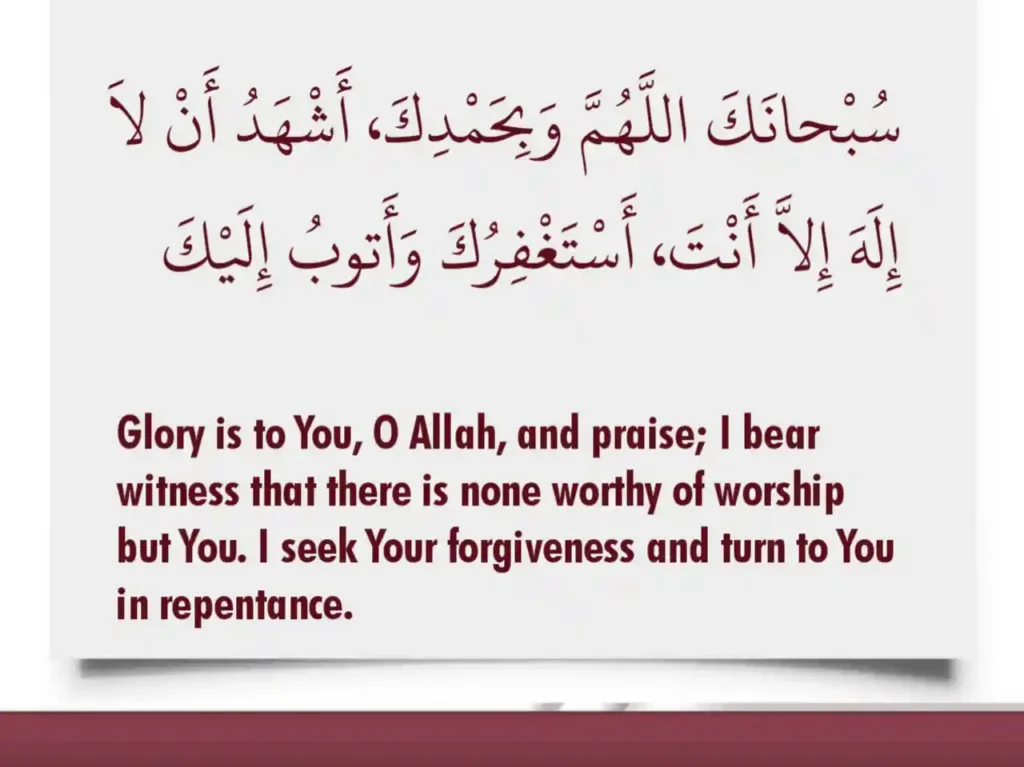
Commentary By Sheik Uthaimeen
It has been previously stated that the Prophet SAW said: “Whoever sits in a gathering and indulges in useless talk and before getting up supplicates:
SubhanakaAllahumma wabihamdika, ashhadu allailaha illa anta, astaghfiruka wa atuubu ilayka (meaning: O Allah! You are free from every imperfection; praise be to You, I ask You pardon and turn to You in repentance),
he will be forgiven the sins committed in that assembly.”
In the hadeeth of Aboo Barzah, may Allah be pleased with him, is evidence that the Prophet SAW used to practice that.
He also explained that this is an expiation for sins committed in assemblies (Kaffaratul Majlis). A man hardly sits in a gathering without indulging in a form of useless talk, amusement or waste of time.
It is thus good that one says this supplication every time he gets up from an assembly: ‘SubhanakaAllahumma wabihamdika, ashhadu allailaha ilia anta, astaghfiruka wa atuubu ilaykaI so that it serves as expiation for sins committed during the assembly.
Taken from explanation of Riyadus saliheen.
Advertisements

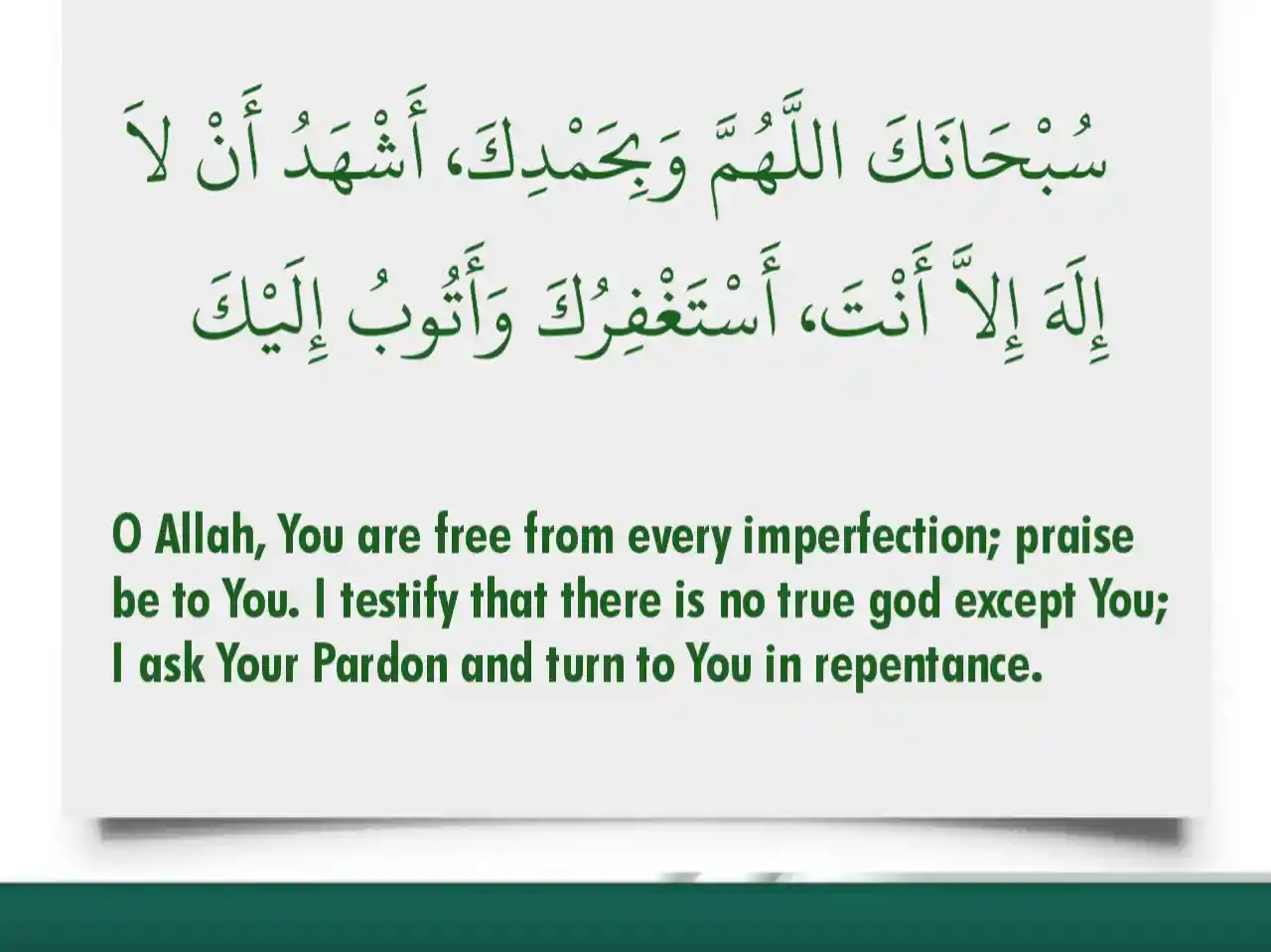
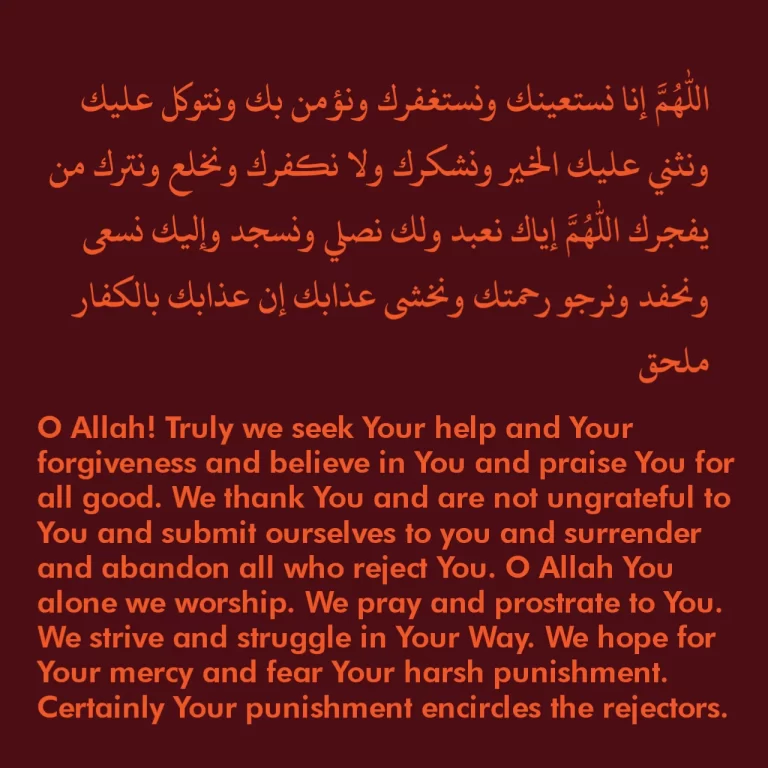
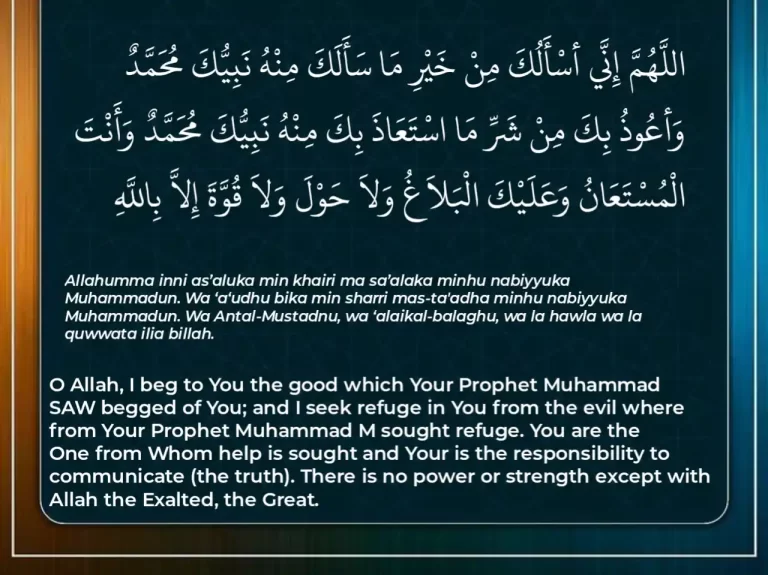
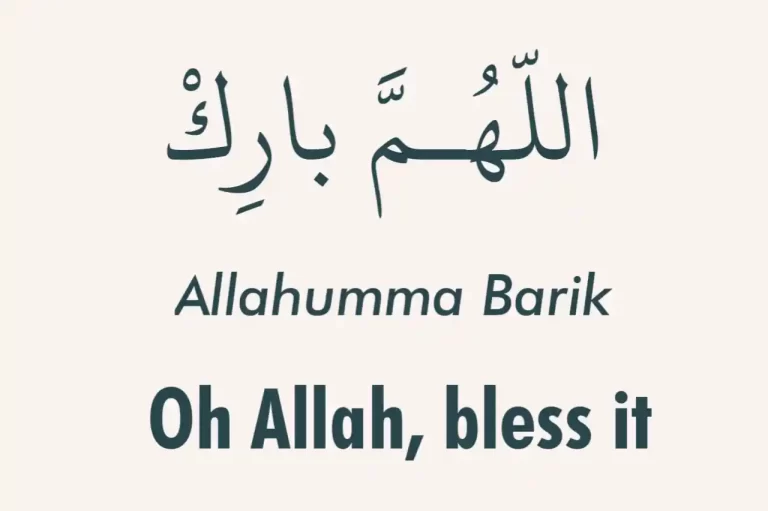
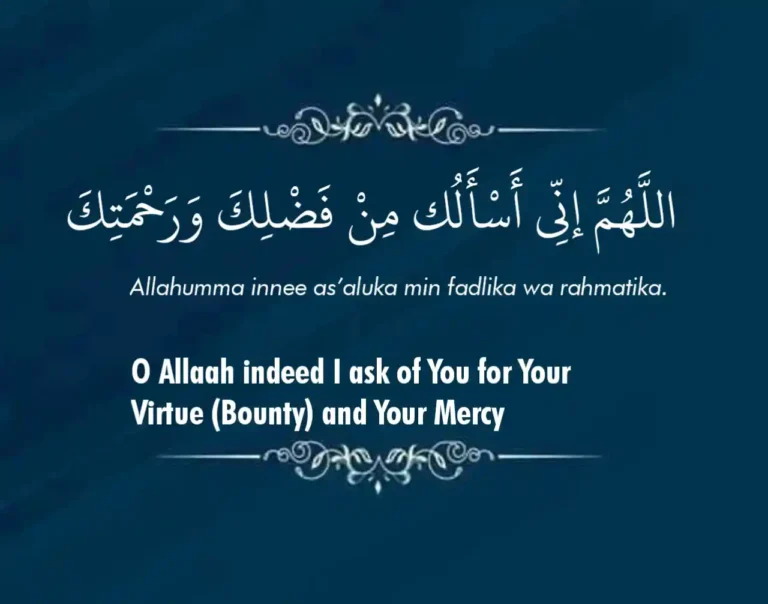
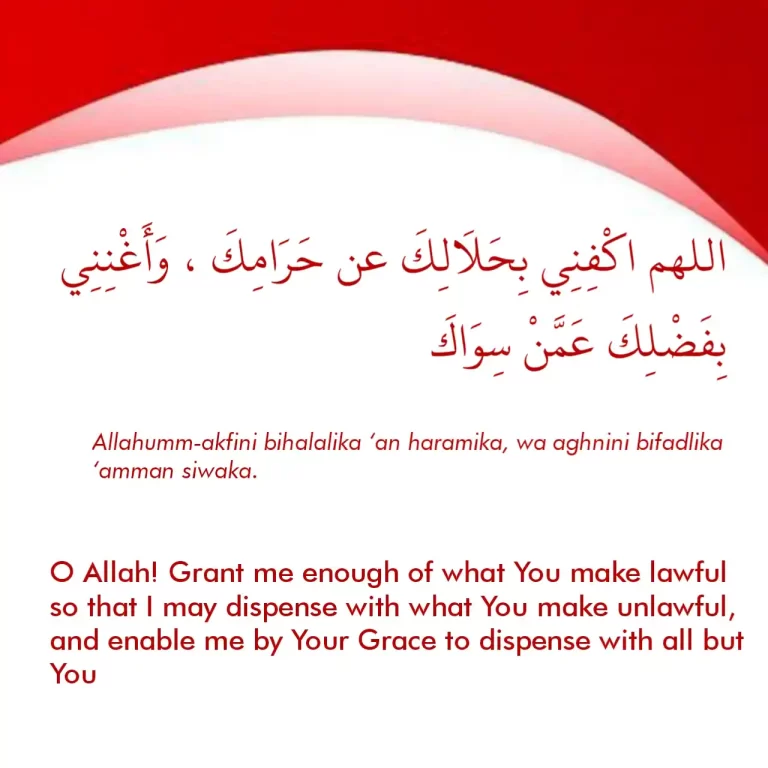
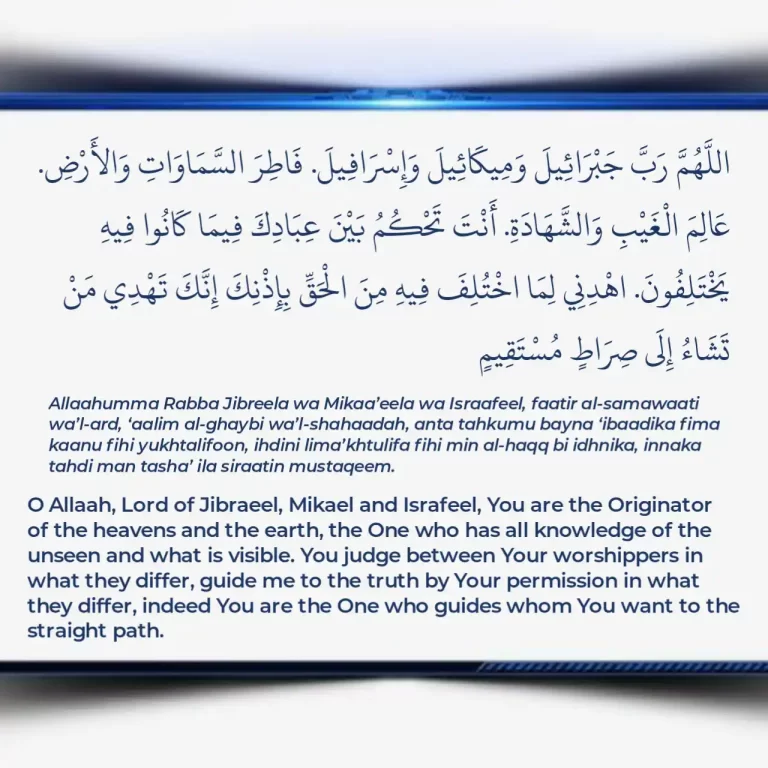
5 Comments